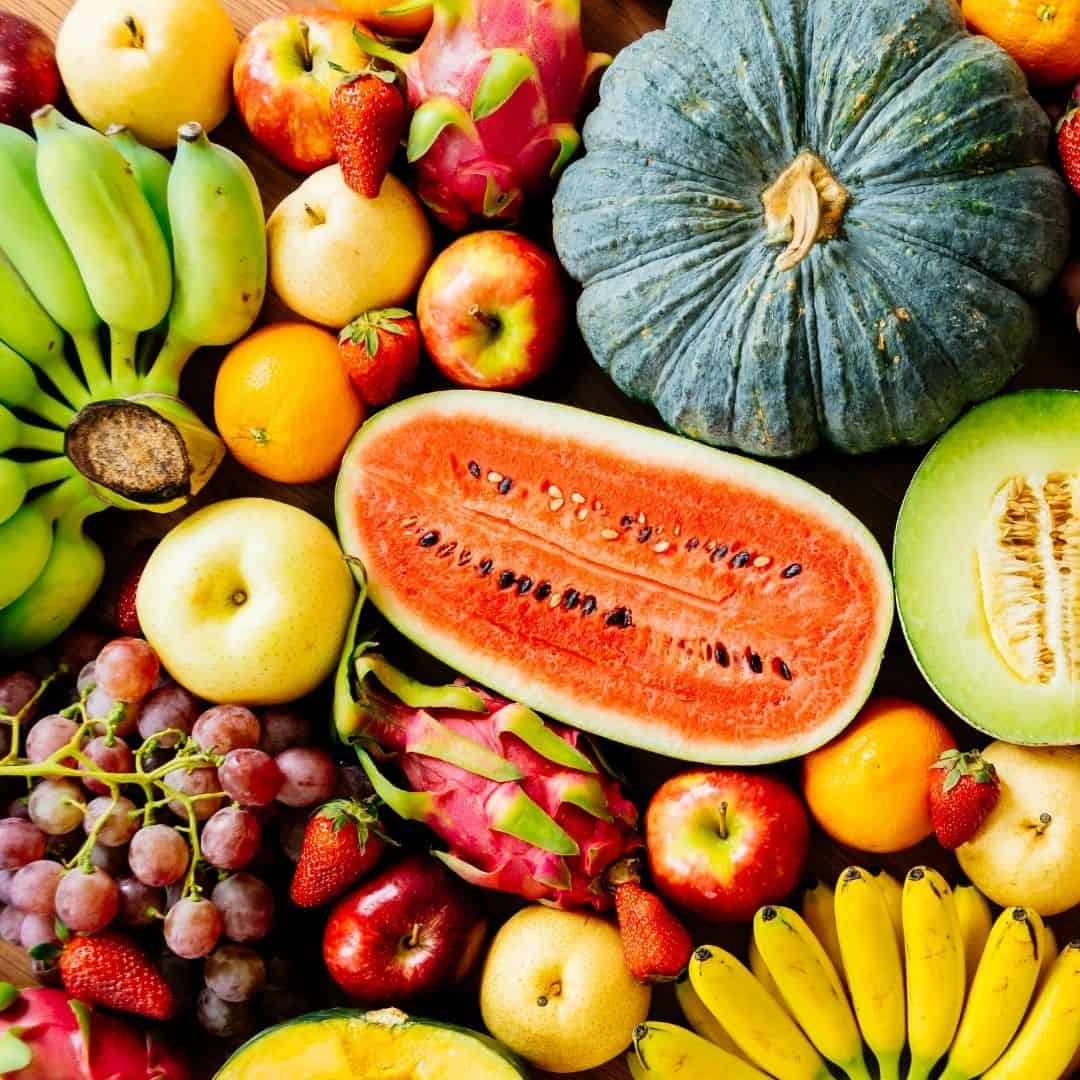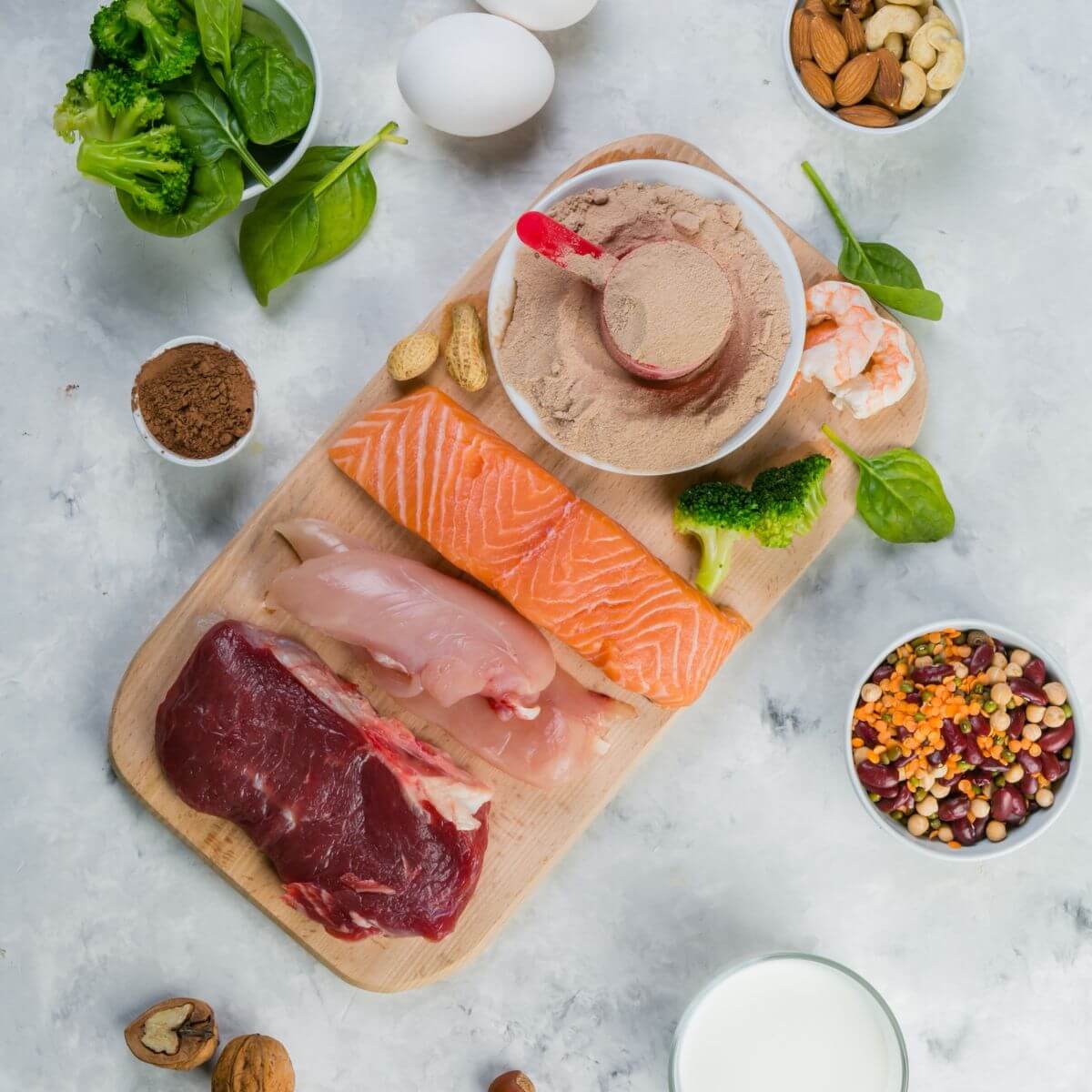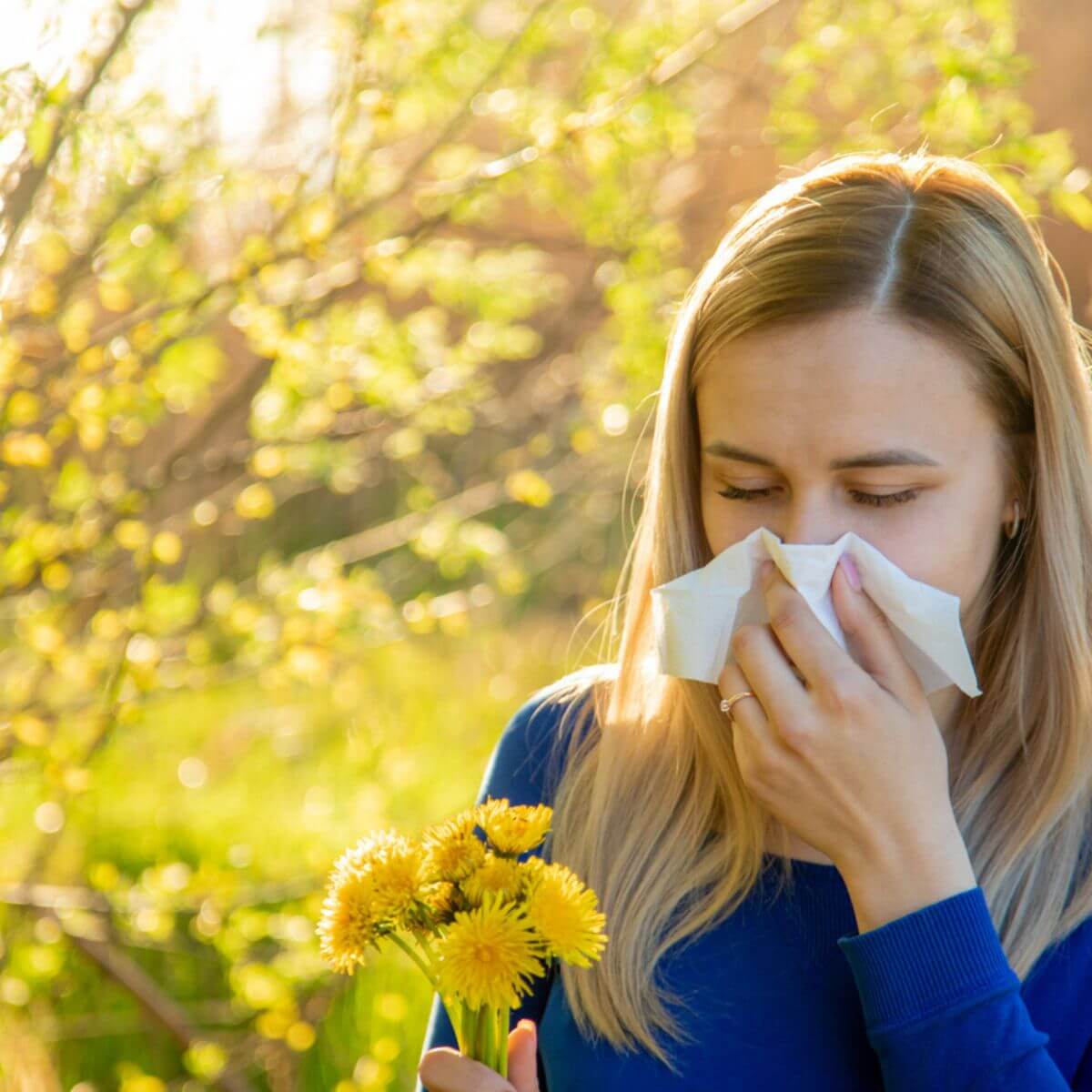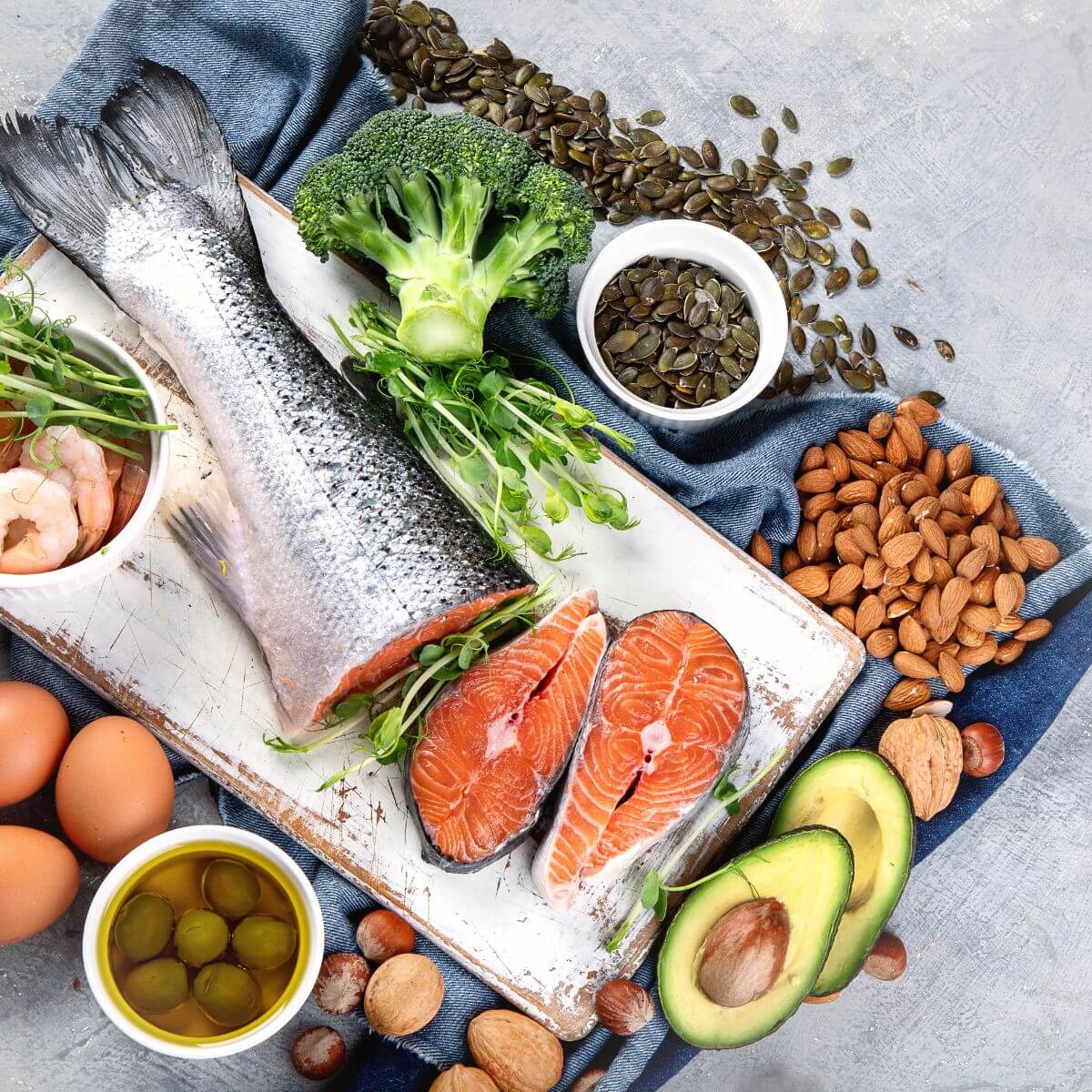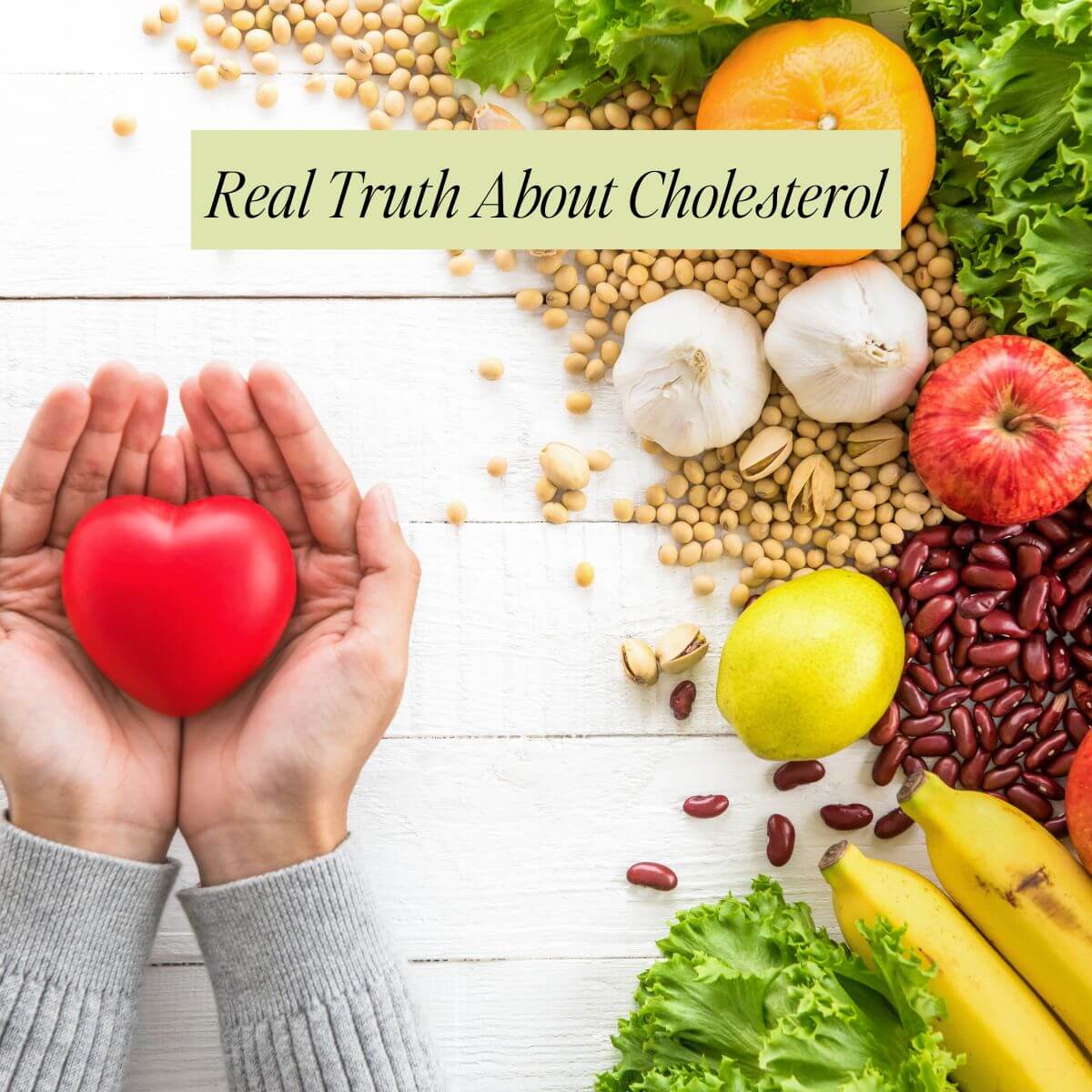You might have heard of antioxidants in fruits and vegetables. But have you heard how abundant fruit and vegetables are in phytochemicals? Or you may have encountered some commercials attempting to sell you the benefits of supplements with phytochemicals. So, what are the different types of phytochemicals?

When your time is limited, learning about nutrition is probably quite low down on your priorities list.
You might know a little about the main macronutrients (carbohydrates, fats and protein) and you may have heard the odd snippet or two about the vitamins.
However, I bet you’ve never heard of natural phytochemicals. For example, apple is known as being full of phytochemicals.
What are the Health and Cancer Benefits of Phytochemicals in Fruits and Vegetables?
In this article, I’m going to discuss why learning about natural phytochemicals is worth five minutes of your time, and how you can incorporate the benefits of phytochemicals into your diet in less than five minutes a day.
Introduction To The Phytochemicals
The phytochemicals are health boosting nutrients that act in a similar way to vitamins and minerals.
The key difference is that vitamins, minerals, are essential, and you cannot survive without them.
What are Phytochemicals?
Are phytochemicals essential nutrients?
Phytochemicals are not essential. But they greatly enhance your health.
Phytochemicals are naturally occurring compounds found in plants. They protect the plant from predators, pests, and environmental stresses. Fruit and vegetables are rich in antioxidants and phytochemicals.
Phytochemicals Benefits
Phytochemicals have many important health benefits. Here are a few examples.
What Do Phytochemicals Do?
The protective properties of phytochemicals can also be transferred to humans as they eat more plant-based foods.
Phytochemicals have been shown to protect cells from cancer, heart disease and other chronic conditions.
Some of their main health benefits include:
1) PHYTOCHEMICALS ACTING AS ANTIOXIDANTS
Phytochemicals act as antioxidants. Antioxidants are substances in food that keep your body’s cells safe from free radicals.
Free radicals are harmful compounds released during oxygen based reactions inside your body. They can accelerate the ageing process, increase the likelihood of you developing chronic diseases, cancer, and much more.
Studies have shown that almost all the phytochemicals are powerful antioxidants and can keep your body’s cells safe from these nasty side effects of free radicals.
2) KEEPING YOUR SKIN HEALTHY WITH PHYTOCHEMICALS
Many skin care products push the fact that they use natural plant based ingredients instead of unnatural chemicals.
If you look at the ingredients in these products, then the chances are that these plant based ingredients are actually phytochemicals.
The reason these phytochemicals are used in skin care products is because studies have shown that phytochemicals can prevent acne, prevent eczema, prevent psoriasis, protect against ultraviolet (UV) damage, reduce visible signs of ageing, and much more.
3) KEEPING YOUR VITAL ORGANS HEALTHY
The phytochemicals give your vital organs a real boost.
Studies have shown that they can strengthen your brain, your eyes, your heart, your kidneys, your liver and more.
4) PROTECTING AGAINST CHRONIC DISEASE WITH PHYTOCHEMICALS
Although no one knows for sure what causes chronic diseases, phytochemicals appear to offer protection against them.
Research has revealed that eating a diet rich in phytochemicals can reduce your risk of contracting cancer, diabetes and heart disease.
How To Easily Add Phytochemicals to Your Diet?
You can get enough phytochemicals into your diet if you eat a diet rich in fruits and vegetables.
How Do We Get Enough Phytochemicals?
It is even found in some teas and even red wine. Eating oranges, blueberries, strawberries are wonderful snacks rich in phytochemicals.
So, rather than seeking supplements with phytochemicals, consider increasing your fruit and vegetable intake instead.

Types of Phytochemicals
There are many types of phytochemicals. Phytochemicals all have varying health benefits.
Here are a few worth noting.
CAROTENOIDS
A type of phytochemical is carotenoids.
Carotenoids are found in many vegetables and fruits, your favorite snacks, even the tea you drink every day!
If you’re eating a diet that includes a lot of vegetables and fruits, then you’re probably getting the phytochemicals your body needs.
So, which foods contain carotenoids?
Foods with carotenoids, type of phytochemicals, include oranges, broccoli, and apple.
ELLAGIC ACID
Ellagic acid is also a type of phytochemical.
So, what foods have ellagic acid?
Ellagic acid is found in pomegranates, strawberries and raspberries.
What are ellagic acid’s health benefits?
Ellagic Acid has been studied for its ability to prevent cancer cells from growing by suppressing the growth of cancer cells and stimulating the death of cancer cells. The role of phytochemicals and cancer has been studied for some time now.
Studies have proven that a diet rich in phytochemicals may have cancer preventative benefits.
FLAVONOIDS
Flavonoids are a type of phytochemicals responsible for the colors of fruits and vegetables. Almost all fruits and vegetables contain some amount of flavonoids.
However, the more vibrant and rich the color, typically the more flavonoids contained.
They have anti-inflammatory, anti-carcinogenic, and anti-oxidative properties.
They are widely touted as helping prevent many chronic diseases, such as atherosclerosis, cancer, and neuroinflammation, that lead to Alzheimer’s disease.
The most common flavonoids include quercetin, kaempferol and catechins that are also known as polyphenols.
What are the top foods with flavonoids?
Berries, kale, tea, red wine, dark chocolate, apples, and red cabbage are some of the top foods containing flavonoids.
RESVERATROL
Resveratrol is a substance found in the skin of red grapes, as well as grape juice and wine. Most people immediately think of red wine when they hear the word resveratrol.
This is correct. Red wine contains high amounts of resveratrol.
What foods have resveratrol?
For example, think of red, purple, deep wine, and berry colors like plums, blueberries, and apple that all contain high amounts of phytochemicals, resveratrol.
GLUCOSINOLATES
The chemical compounds found in broccoli, parsley, kale, cabbage and other cruciferous vegetables, like Brussels sprouts, are called glucosinolates, and these compounds can cause your taste buds to experience a pungent bitter sensation.
The nutritional effects of the phytochemicals, glucosinolates, which is an important group of sulfur-containing glucosides, had not been widely publicized.
However, the glucosinolate is not pungent. Eating these foods that contain glucosinolates raw increases the anticancer activity.
But many individuals have a tough time digesting these types of food in their raw state. So, steaming them is an ideal preparation for these foods too.
PHYTOESTROGENS
What foods have phytoestrogens?
Phytoestrogens are most notably found in soy. But can also be found in foods like beans and flaxseeds.
They are the chemicals in fruits and vegetables that have a chemical structure similar to estrogen, which can help lower cholesterol levels and keep blood from clotting.
Phytoestrogens are debatable because of the studies done on conflicting data regarding hormonal protection or harm with breast cancer. Some believe phytoestrogens can help breast and endometrial cancer, heart disease, and even high cholesterol.
Some findings suggest that the addition of soy isoflavones stimulates breast cancer growth.
Further research studies are needed to truly determine the effects of phytoestrogens.

What is the Best Source of Phytochemicals?
There are thousands of types of phytochemicals out there.
However, many of these phytochemicals can be found in similar foods. By incorporating these foods into your diet, you can quickly add considerable amounts of phytochemicals to your diet.
Thus, you can begin to enjoy the benefits listed above in little to no time.
6 Quick Ways to Add Phytochemicals Into Your Diet
The list below outlines some of the best ways to quickly add phytochemicals to your diet.
1) HAVE BERRIES & OATMEAL FOR BREAKFAST
Do you remember when blueberries were named the ultimate super food?
What about when everyone went crazy for açai berries?
While the hype around these berries was a bit over the top, there was a reason that these berries started getting so much attention.
Berries contain significant levels of a group of phytochemicals called anthocyanins. Eating berries and oatmeal for breakfast a few days each week is a quick and easy way to incorporate the anthocyanins into your diet.
Firstly, simply heat some almond milk and oats in a pan. Next, simmer for a few minutes. Finally, top with fresh berries.
2) DRINK MORE TEA
Green tea is another super food that appeared everywhere a few years ago. The reason for all the interest in green tea is that it’s a brilliant source of the phytochemical group – flavan-3-ols.
While green tea contains the highest levels of flavan-3-ols, black tea and oolong tea are also an excellent source.
By simply drinking more tea (black, green or oolong) throughout the day, you can fill your body with flavan-3-ols.
Preparing and drinking tea doesn’t take long. You just boil the kettle and brew it up in a cup.
However, if you are really pushed for time, you can brew up a large thermos container of tea first thing in the morning, and then drink it throughout the day.
3) START EATING SOY BEANS WITH YOUR LUNCH & DINNER
Soy beans are yet another food that has shot up to super star status in the past for their cancer preventing properties. The secret behind their cancer fighting powers is a group of phytochemicals called isoflavones.
The good news is that isoflavones can be added to your diet in virtually no time. Simply by including some soy beans with your lunch time salad. Use them as a side vegetable with your evening meal a few times each week.
4) START ADDING OLIVES INTO YOUR DIET
The Mediterranean diet is believed to be one of the healthiest diets in the world.
Studies have suggested that the main reason it is so healthy is because it incorporates lots of olives, olive oil and extra virgin olive oil. All of which are an exclusive source of the phytochemical group – tyrosol esters.
It’s good news that you can incorporate the tyrosol esters into your diet pretty easily, and enjoy their benefits without going completely Mediterranean.
Olives can be added to salads or used to complement certain hot foods. While olive oil and extra virgin olive oil can be added to sauces and garnished fish, meats and vegetables.
5) SNACK ON ORANGES
Citrus fruits are one of the best sources of a group of phytochemicals called flavanones.
By snacking on an orange once a day, you can add the flavanones to your diet. The best part is it takes less than a minute to do so. This is the easiest phytochemical rich snack because oranges are so portable.
6) SNACK ON APPLES
One delicious fruit full of phytochemicals, such as quercetin, chlorogenic acid, and catechins, is apple. So if you want to get more phytochemicals in your diet, try apple.
Apples are known for their flavonoid and polyphenol compounds. It is important to note that higher levels of antioxidant and phytochemicals were found in the outside peel of apples.
So, make sure you leave the peel on when snacking on apples.

Natural Bioactive Phytochemical Benefits Are the Key to Good Health!
I hope this article has shown you that they are worth your time.
No matter how busy you are. Brewing a cup of tea first thing in the morning, sprinkling a few berries on your oatmeal at breakfast, or garnishing your meats with extra virgin olive oil before you cook them are all tasks that take very little time out of your day. But they can do wonders for your health.
Make sure you take the extra five minutes each day to incorporate them into your diet. Start enjoying a healthier, happier life.
Which Phytochemical Rich Fruit or Vegetable Will You Try This Week?
Were you surprised to learn such important information about the health benefits of phytochemicals in fruits and vegetables?
Let me know in the comment section below.
I would also love to hear what you think, or take a photo and tag me @Eat_Your_Nutrition on Instagram. I love seeing your photos. #EatYourNutrition #LauraVillanueva
